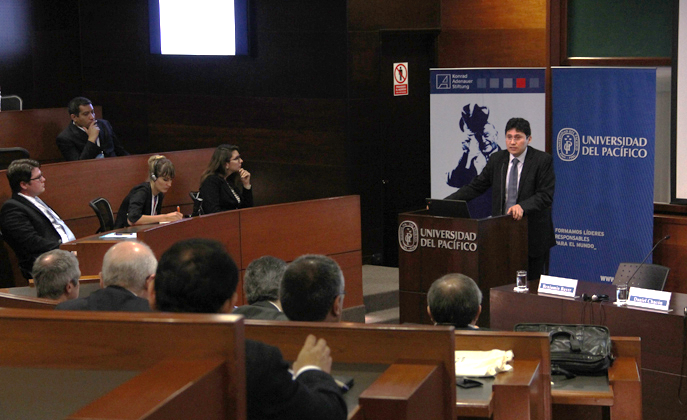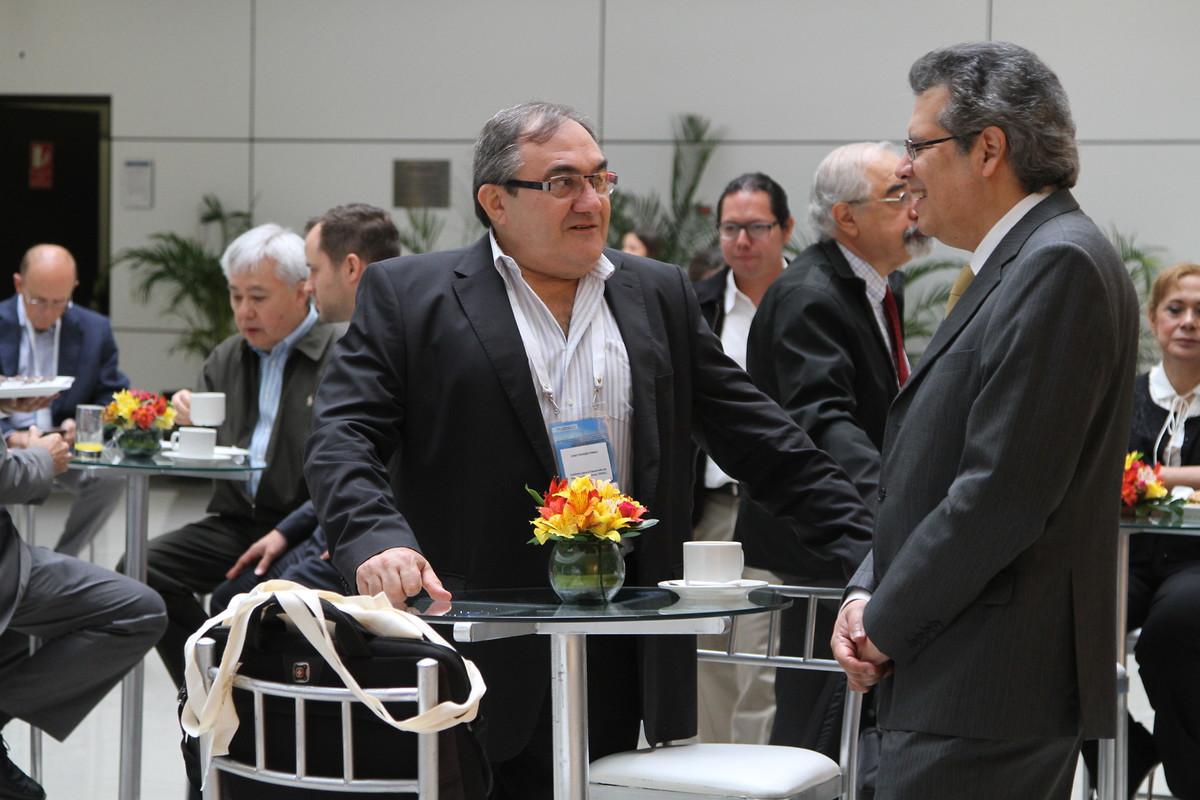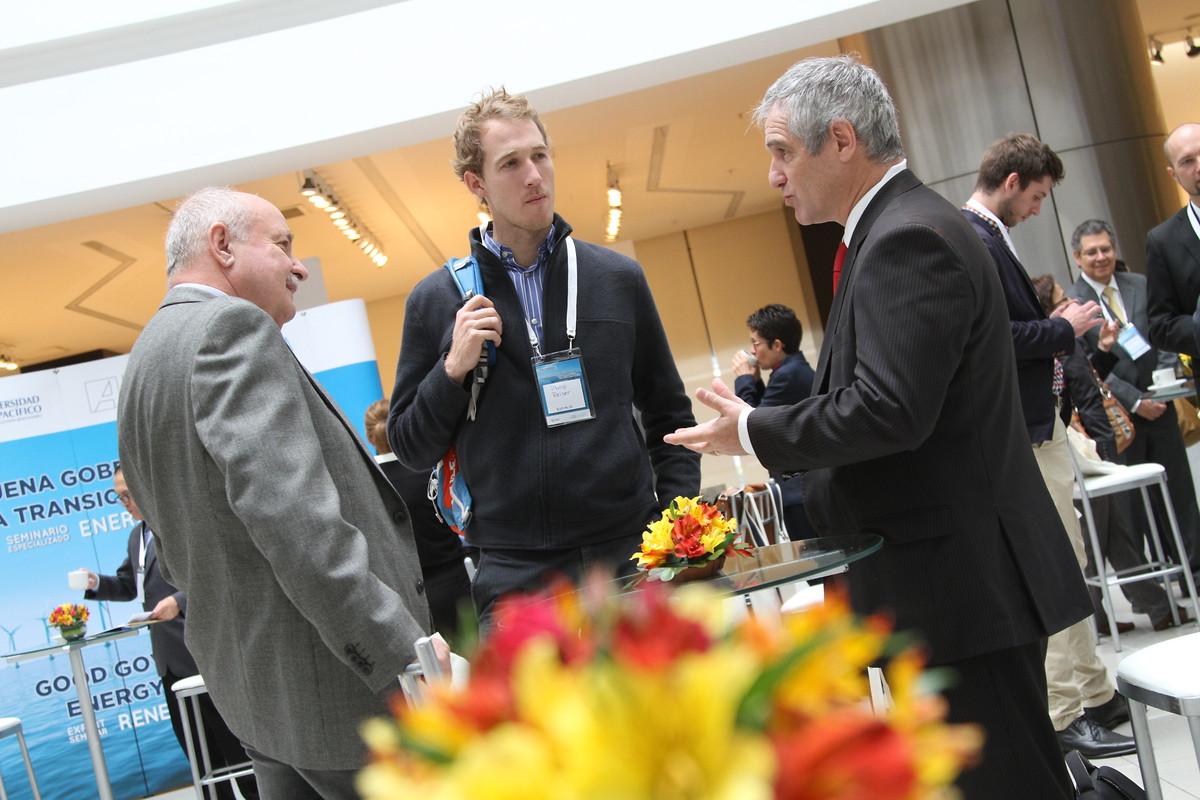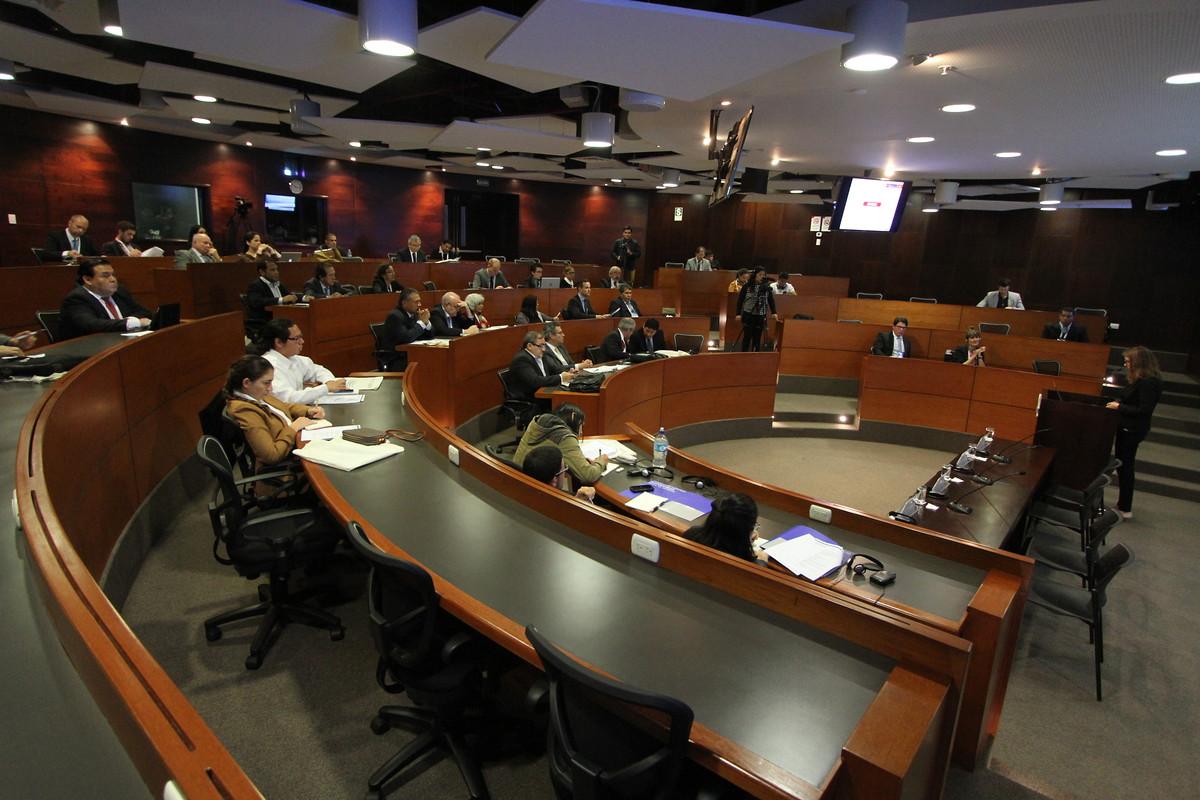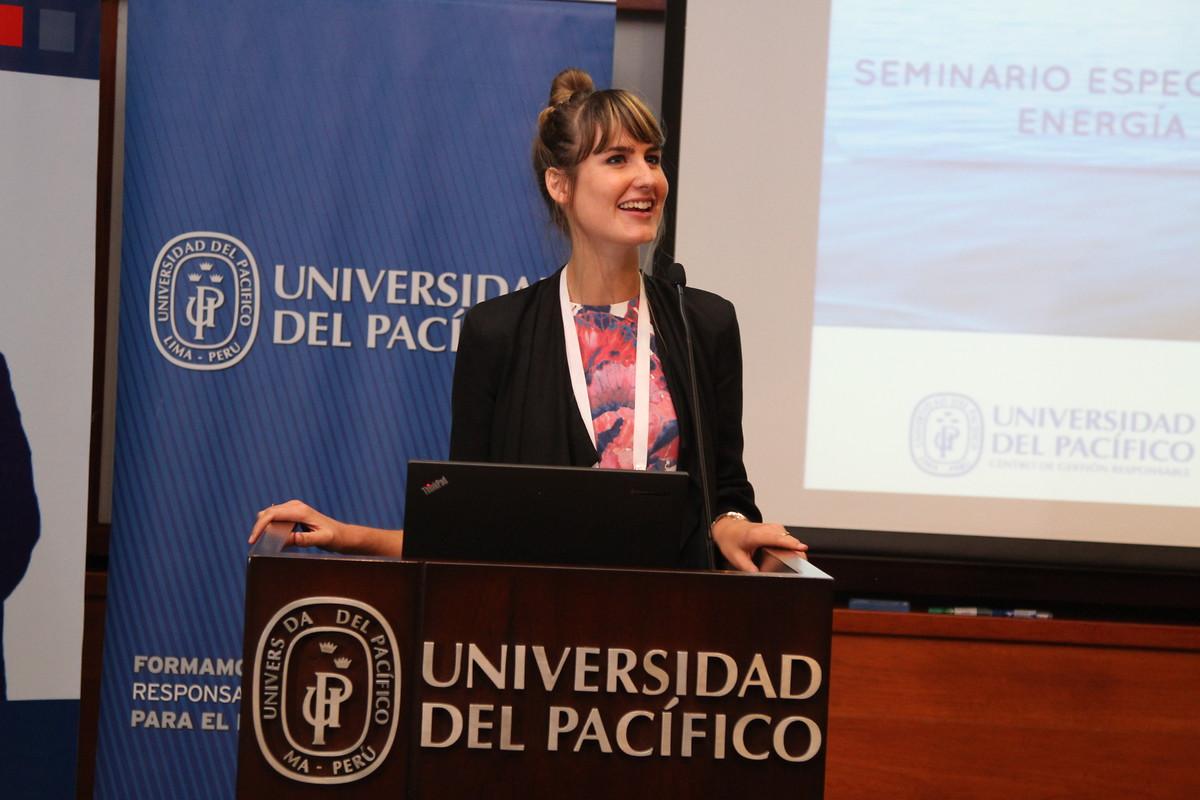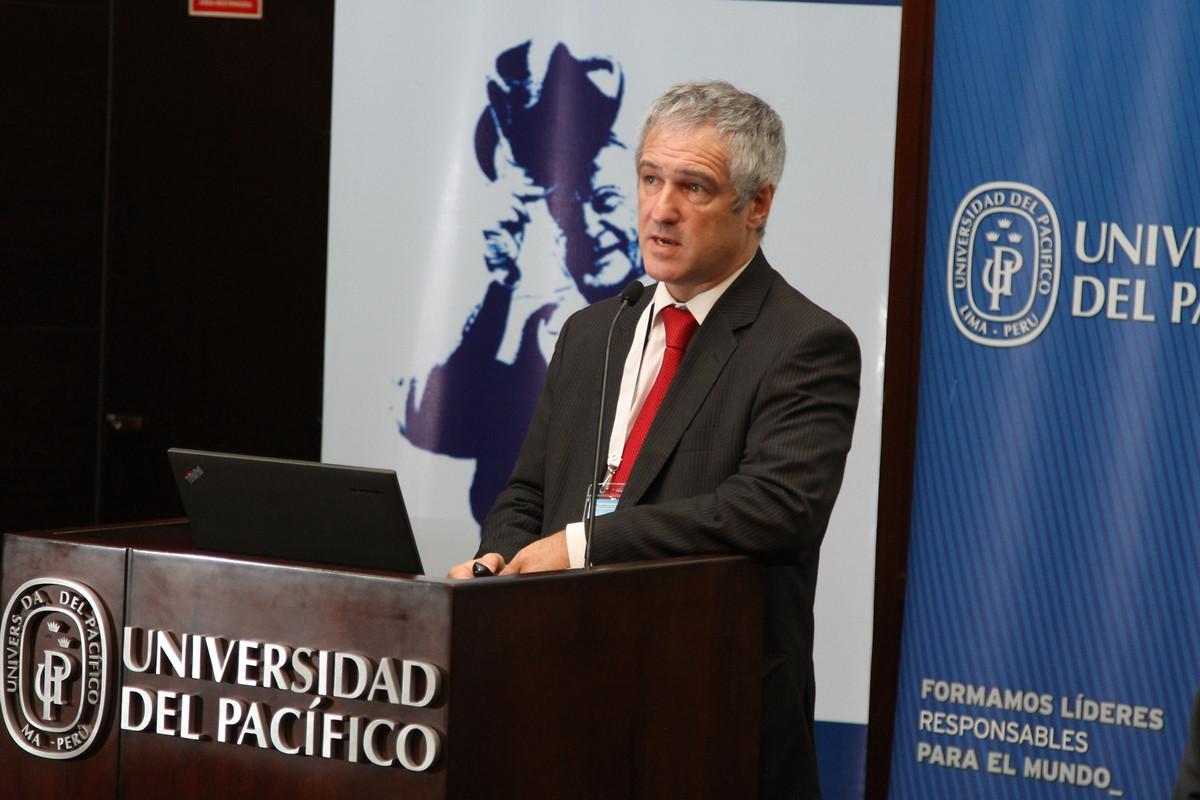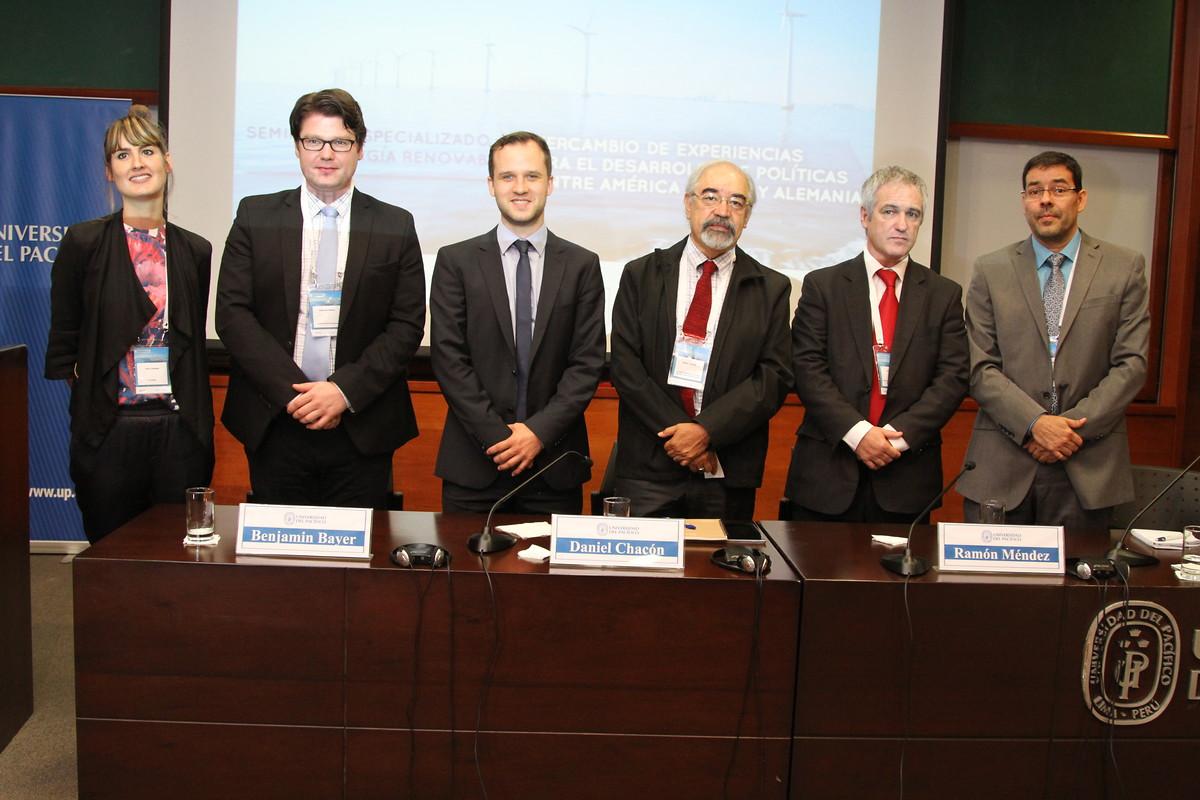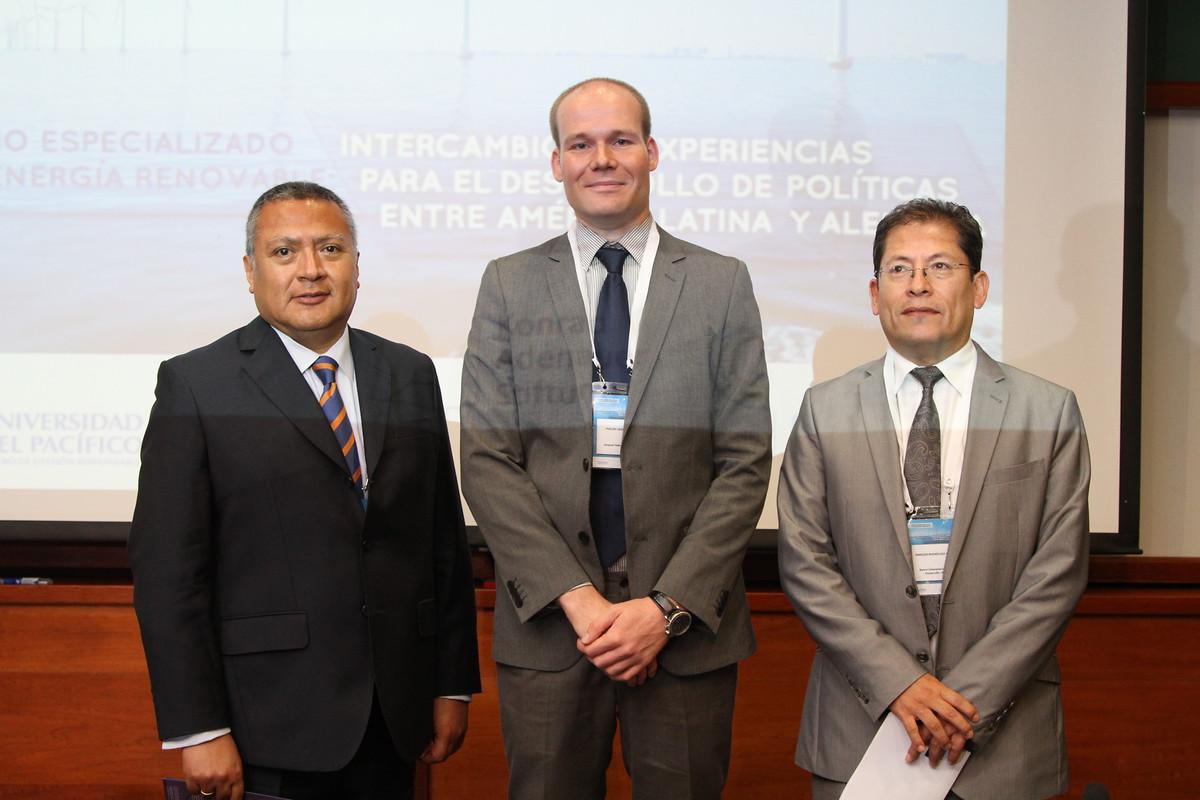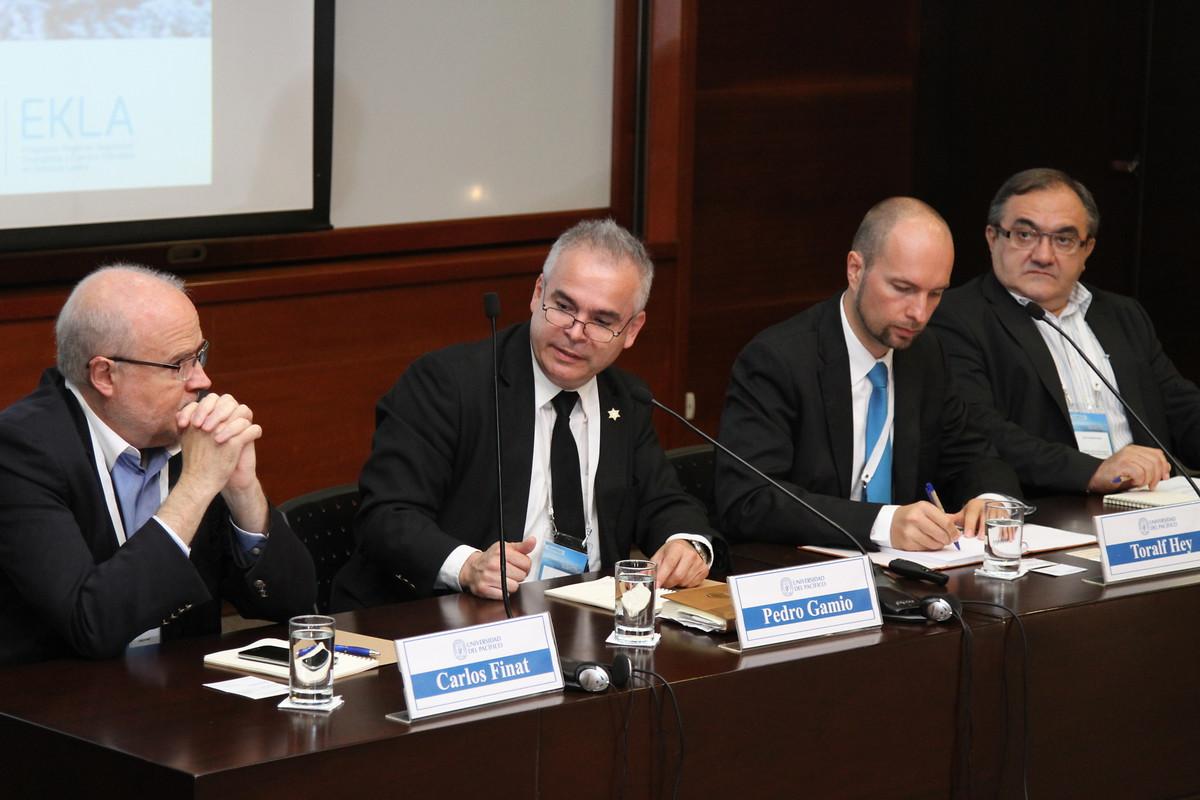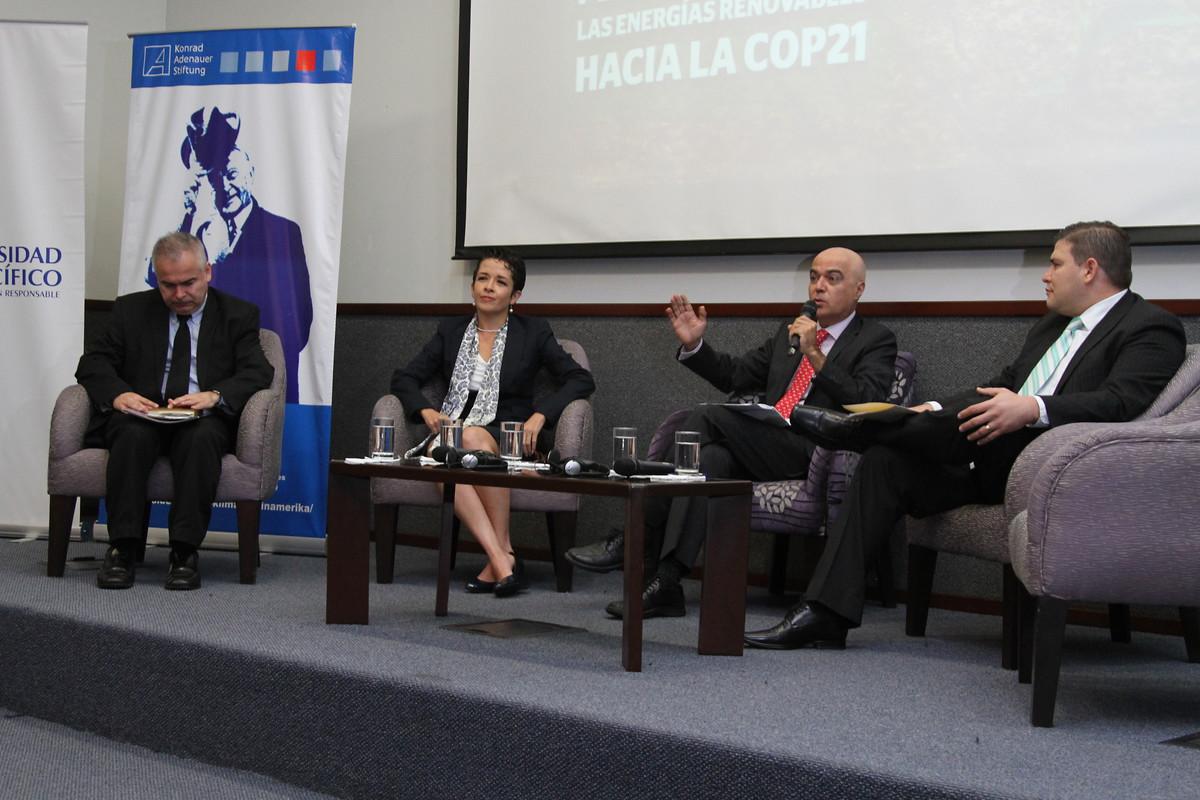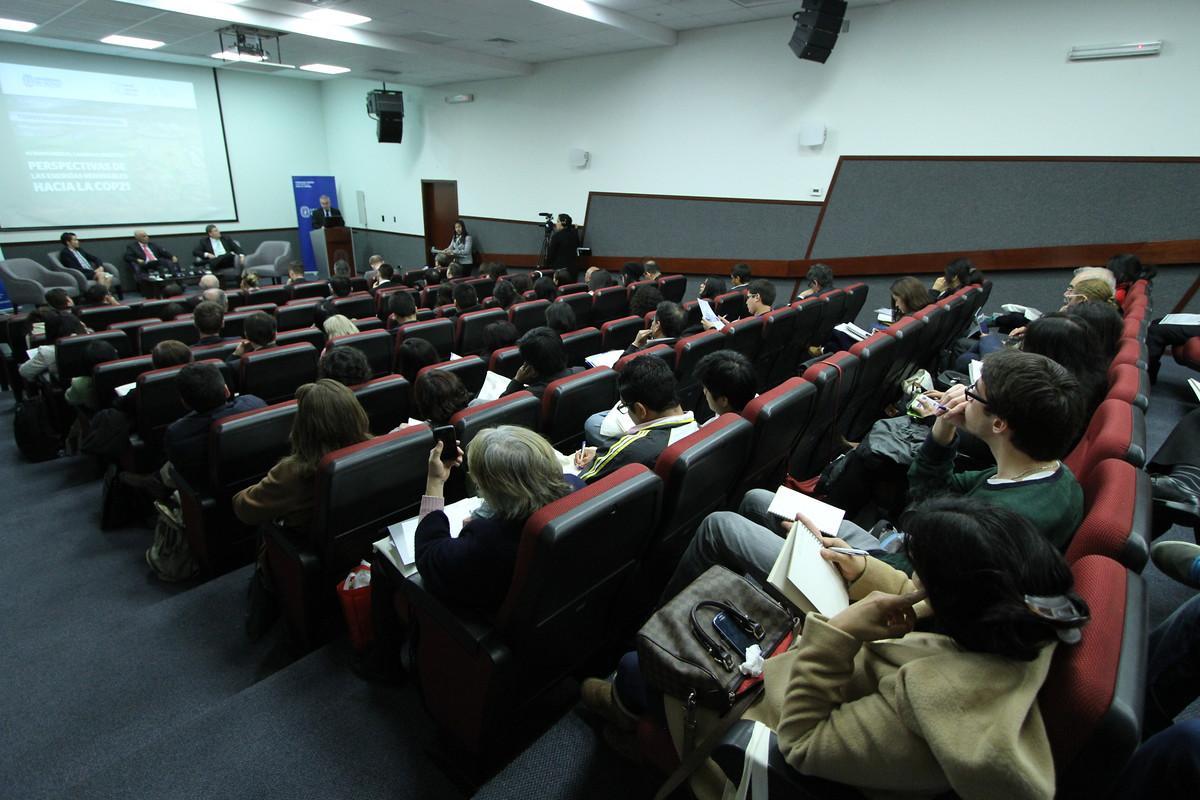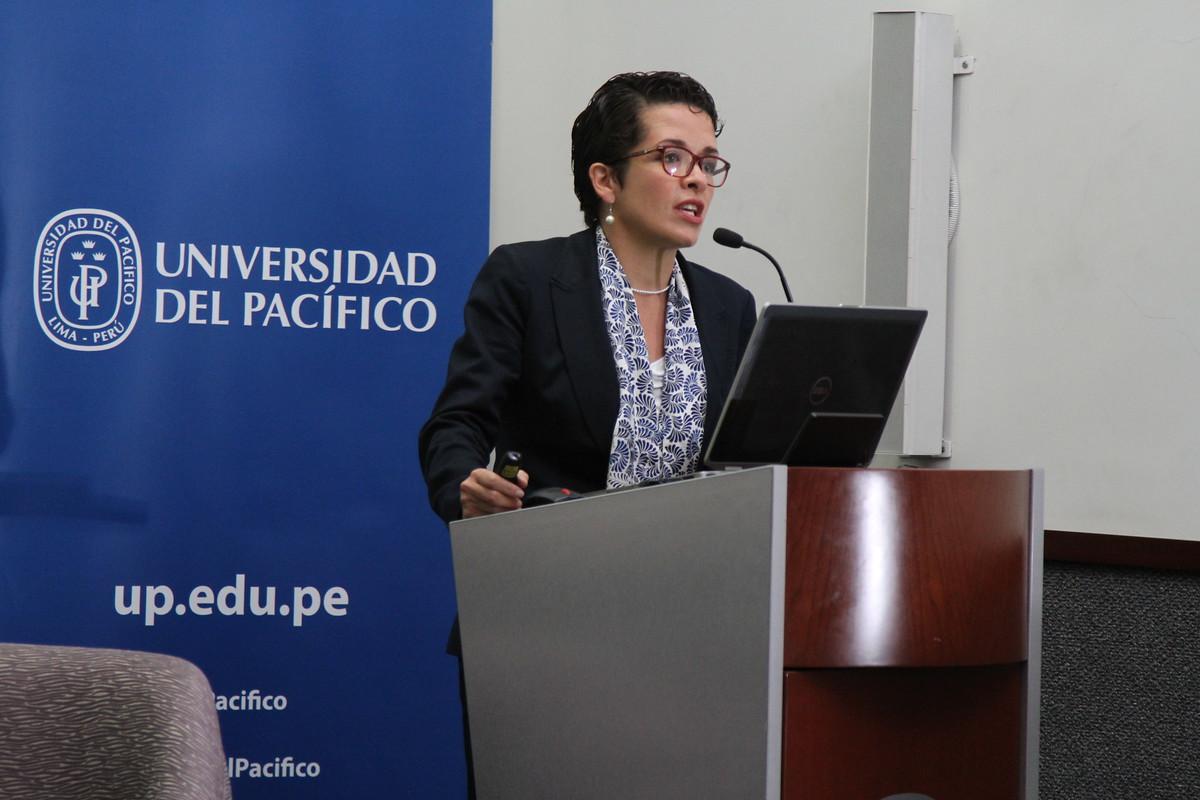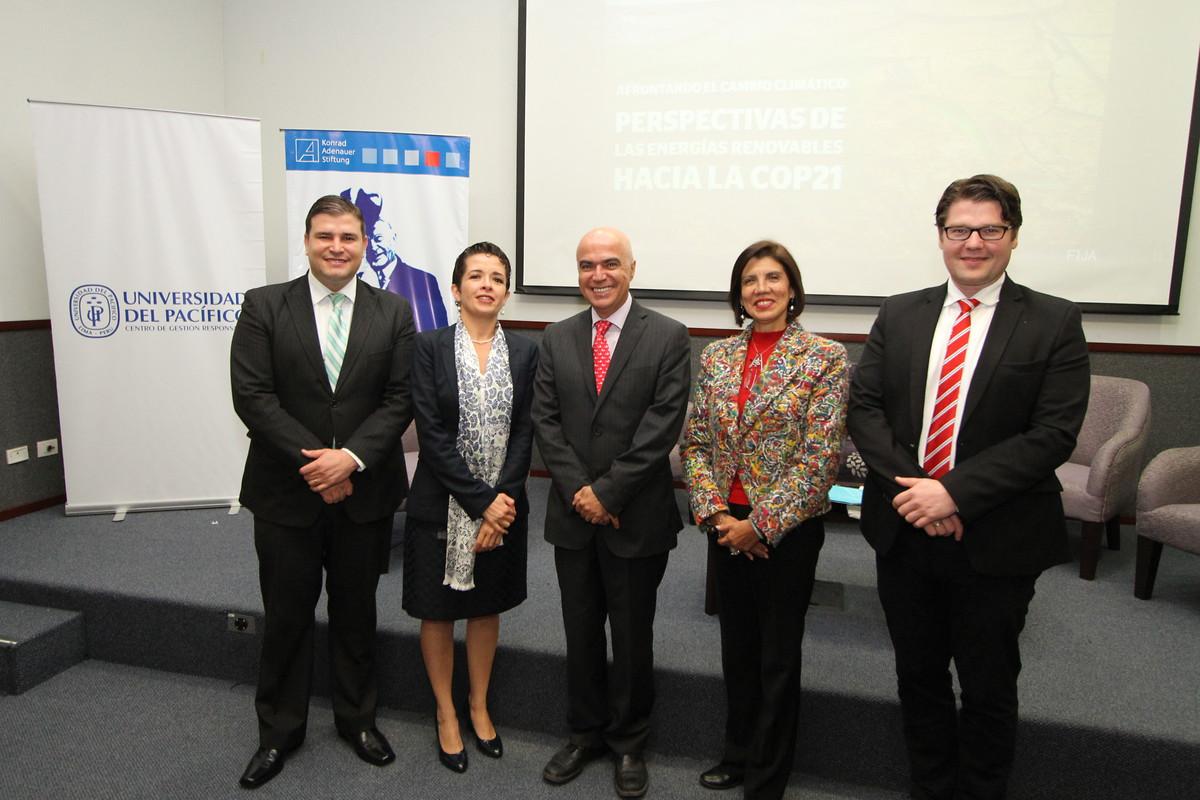Between success and challenges
Event Reports
Latin America has tremendous potential available for renewable energy sources, enough to cover the countries’ increasing energy demand. Which factors promote the energy policy within the region? Which framework conditions foster the development of renewable energies? How different are challenges between countries? These and other questions were the center of the discussion at the two-days conference titled “Good Governance for Energy Transition” organized by the Konrad Adenauer Foundation’s Regional Programme Energy Security and Climate Change in Latin America based in Lima. Congressmen, scholars, and contributors from the wider energy sector from all over Latin America were invited to the Peruvian capital to report on the current stand of energy policy in their countries so as to discuss regional challenges. Contributions from German referents allowed Latin American decision-makers to have an in-depth look at both German and European energy debates.
In the consistent implementation of an energy transition policy in Latin America, small-in-area countries Costa Rica and Uruguay are clear role models. Therefore, presentations from energy experts from both countries at the beginning of the Conference motivated the participants. In the last three months, Costa Rica was able to generate almost 100% of the electricity consumed in the country through renewable energy. Uruguay wants to cover far more than 50% of its primary energy consumption with renewable sources by the end of 2015. In both countries, hydropower has a crucial role with over 60% participation. “We bet on public tenders instead of state subsidies” described Uruguay’s National Energy Director Ramon Mendez as the winning formula for this fast and successful development. Especially foreign companies invest in the wind sector nowadays, and there are additional tax incentives when individual components are built in the country. Consistent development of renewable energies in both Uruguay and Costa Rica arise from the will of an independent energy supply, which is more achievable each day: One cannot rule out the possibility that in the future Uruguay will sell clean electricity to its neighbors Brazil and Argentina.
What is the oil-rich countries’ incentive to convert its energy system? Oil and gas in the region are specially used in the gas and industrial sectors. Besides, fossil fuels’ subventions almost double those for green energy. Against this background, Costa Rican energy analyst Jorge Mario Montero spoke about a “lost decade” for the development of a South American energy policy. This implementation could be much more advanced if there were political will, Montero said, although it is a fact that clean energy is on the march in the whole region. “Latin American states have committed to diversify its energy mix and reduce climate-damaging CO2 emissions” stated Daniel Chacón, Regional Director for the Latin American Regional Climate Change Initiative (LARCI) in his presentation. Actually, climate change and its negative consequences for the region are more and more strongly perceived, especially at the light of energy security. Given that South America covers more than 65% of its electricity demand with hydropower, more frequent droughts constitute a menace to a secure energy supply. Hence, Latin American countries are aware that future energy supply must rely increasingly on alternative sources such as wind, photovoltaic, and geothermal energy. Despite being a great oil exporter, Brazil has taken big steps towards wind power expansion, a market that will continue growing. Joao Pinho, Director of the Renewable Energy Institute IDEA based in Brazil, points out that also other aspects -like energy efficiency- should be taken into account. For all South America, emission reduction in transport sector represents a great challenge.
Mexican energy expert Chacón rules out that current low oil prices restrict the renewable energy development. For a petroleum exporting country like Mexico on the contrary, this is an incentive to attract more investments to develop clean energy sources. With the decision made last year to privatize the energy sector and to open to both domestic and abroad investments, there are several adjustments pending in Mexico’s energy policy. Expansion of clean energy supply is promoted through public tenders and clean energy certificates “Certificados de Energía Limpia” (CEL). This model contemplates sanctions to providers who don’t comply with specific requirements for a green electricity supply. Besides, private companies should autonomously expand the power supply system. It is noteworthy that many countries in Latin America laid the conversion of their energy system in private hands and want to minimize state control.
Benjamin Bayer from the Institute for Advanced Sustainability Studies (IASS) in Potsdam, gave an insight into German energy transition history and its current stand. A particularity of this German transition is that renewable energies are supported through feed-in-compensations, so households can also invest in the expansion of cleaner energy. Meanwhile, conditions have changed: subsidies have been reduced and tendering plays a major role, especially in the PV field and the onshore wind sector. An essential mean of control in German energy transition is climate protection, given that the country is known for its ambitious climate protection goals. By 2050, greenhouse emissions should be reduced by 95% compared to 1990 levels. On the need for energy transition there are no doubts, both in civil society and by policy-makers. However, there are questions regarding implementation challenges that need to be solved, like the integration of this volatile renewable energies into the grid, so as the socially responsible development of this network. German energy system conversion did not happen overnight but in phases, in order to ensure that energy transition did not risk a secure energy supply.
Much like in the European Union, in South America there are also clear efforts to consolidate the electricity market and to support it with transnational projects. This approach is optimal for the use of regenerative energies because different geographic conditions make meaningful to use diverse technologies for each location. However, energy policy integration is not an easy task since it depends on the different needs and challenges for each South American country. Currently there are several institutions that address the energy integration matter, like the Latin American Energy Organization (OLADE), which propelled great integration efforts in the past years. Despite this, bilateral projects and specially hydropower projects are still predominant, as Juan José Córdova from KPMG Consulting Firm explained. The few existing multilateral agreements are only in the natural gas field.
Participants agreed that further integration is possible, but its implementation needs basic conditions. "We are still missing a common legal framework" concluded Enrique Rodriguez-Flores, energy specialist at the Inter-American Development Bank. On the other hand, researcher at Institute Jaques Delors, Phillip Offenberg, presented the current state of debate on energy union in Europe, whose main idea is that energy and climate policy objectives can only be meaningfully implemented within the European framework. In addition to energy security, the concept also grasps energy efficiency, climate protection, and even competitiveness. Offenberg made clear that economic benefits of energy policy could extend to the whole of Europe. These benefits include new development opportunities for businesses, as well as job creation.
Further discussions focused on investors’ security and political conditions as essential prerequisites for a successful energy transition. Pedro Gamio, former Peruvian Environmental vice Minister, reminded the audience that his country still lacks a clear tax policy to encourage investment in renewable energy. In order to create incentives for investments, further bureaucratic hurdles would have to be dismantled, Gamio said. Also, it is just as urgent to invest in new technologies research. However, participants agreed that energy transition policy implementation is always contextual and therefore, a major challenge for the future is to increasingly involve civil society in these processes. Just new hydropower projects generated social tensions, as people set on these areas are to be resettled, in many cases against their will.
The 20th Climate Change Conference held last year in Lima has significantly contributed to the Latin American public discussion on climate change and to demand policy-makers to adopt and implement concrete measures on this subject. The fact that energy transition is set higher in the political agenda is reflected in the participation of politicians in project inaugurations, like the presence of Brazilian President Dilma Roussef at a big wind park opening. Energy policy in Latin America is promoted from the energy security perspective: currently low oil prices hit especially oil-producing countries like Venezuela, Argentina, Brazil, and Mexico. In addition to this, the increasing risk of water scarcity urges the development of alternative energy sources like photovoltaic, wind, or geothermic. Renewable energies are quite competitive in some places. “Taking in to account the external costs of fossil energy such as health impact and environmental degradation, clean energies are actually cheaper”, explained former environmental vice Minister Pedro Gamio.
By the end of the conference existed the consensus that given the enormous geographic and economic potentials, the region is capable to systematically implement its own energy transition policy. Different workshops and discussions helped to identify the status quo and show the challenges, like the need to develop a strategy that takes into account regional differences. At the same time, these differences are precisely what make these regional alliances promotion and transnational cooperation on energy policy so meaningful.
Author: Nora Zaremba | Editor: Dr. Christian Hübner.
About this series
The Konrad-Adenauer-Stiftung, its educational institutions, centres and foreign offices, offer several thousand events on various subjects each year. We provide up to date and exclusive reports on selected conferences, events and symposia at www.kas.de. In addition to a summary of the contents, you can also find additional material such as pictures, speeches, videos or audio clips.



